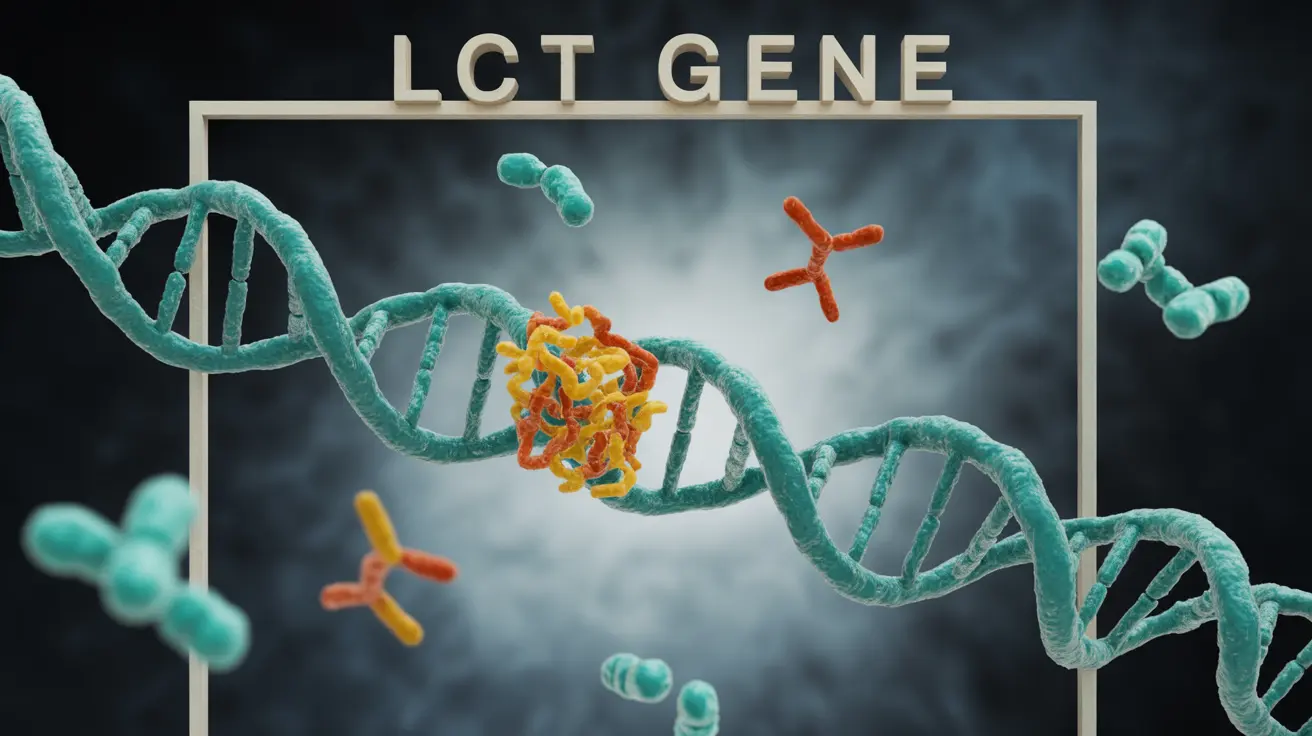Lactose intolerance affects millions of people worldwide, and many wonder if this condition is genetic. Understanding the hereditary aspects of lactose intolerance can help explain why some people can digest dairy products throughout their lives while others cannot.
This comprehensive guide explores the genetic factors behind lactose intolerance, how it varies across different populations, and what role your DNA plays in determining your ability to digest dairy products.
The Genetic Foundation of Lactose Intolerance
Lactose intolerance is indeed genetic, primarily controlled by the LCT gene, which provides instructions for producing lactase—the enzyme that breaks down lactose in dairy products. The ability to produce lactase into adulthood, known as lactase persistence, is determined by genetic variations near this gene.
Most babies are born with the ability to produce lactase, allowing them to digest their mother's milk. However, for many people, this ability naturally decreases over time due to genetic programming.
Types of Lactose Intolerance
Primary Lactose Intolerance
This is the most common form, occurring when people naturally lose their ability to produce lactase after childhood. It's determined by your genetic makeup and typically develops between ages 2 and 20.
Congenital Lactose Intolerance
This rare form is present from birth, caused by inherited mutations in the LCT gene. Babies with this condition cannot digest lactose from birth and require special infant formulas.
Secondary Lactose Intolerance
This type develops due to injury or illness affecting the small intestine, rather than genetic factors. It can be temporary or permanent, depending on the underlying cause.
The Role of Ethnicity and Ancestry
Your genetic likelihood of developing lactose intolerance is strongly influenced by your ethnic background. Different populations have varying rates of lactase persistence:
- Northern European descent: 5-15% lactose intolerant
- Southern European descent: 60-80% lactose intolerant
- African and Asian descent: 60-100% lactose intolerant
- Native American descent: 80-100% lactose intolerant
Genetic Testing and Diagnosis
Modern genetic testing can identify variations in the genes associated with lactose intolerance. However, these tests are not always necessary for diagnosis, as healthcare providers often use other methods like hydrogen breath tests or elimination diets to confirm lactose intolerance.
Frequently Asked Questions
Is lactose intolerance usually inherited, and what genes are involved?
Yes, lactose intolerance is typically inherited. The primary gene involved is the LCT gene, which controls lactase production. Variations in the MCM6 gene, which regulates the LCT gene, also play a crucial role in determining whether you'll maintain the ability to digest lactose into adulthood.
Why do some people develop lactose intolerance later in life, while others can digest milk as adults?
This difference is due to genetic variations that affect lactase persistence. Those who can digest milk as adults have genetic mutations that maintain lactase production throughout life, while others naturally decrease lactase production after childhood due to their genetic programming.
How does your ethnicity or ancestry affect your risk of lactose intolerance?
Ethnicity significantly influences lactose intolerance risk due to different evolutionary histories of dairy consumption. Northern European populations have the highest rates of lactase persistence, while those of Asian, African, and Native American descent are more likely to be lactose intolerant.
What is the difference between primary, congenital, and secondary lactose intolerance?
Primary lactose intolerance is the genetic loss of lactase production over time, congenital lactose intolerance is a rare inherited condition present from birth, and secondary lactose intolerance develops due to intestinal injury or illness rather than genetic factors.
Can genetic testing tell me if I am lactose intolerant or able to digest lactose as an adult?
Yes, genetic testing can identify variations in the LCT and MCM6 genes that indicate your ability to produce lactase as an adult. However, clinical symptoms and other diagnostic tests are often more practical for confirming lactose intolerance.




